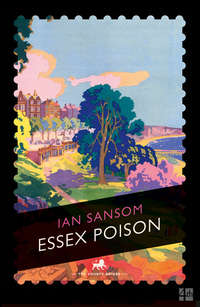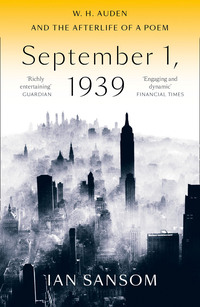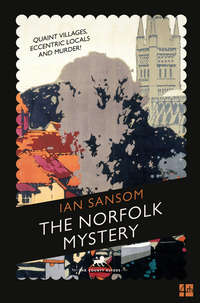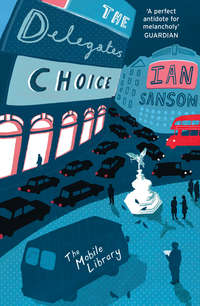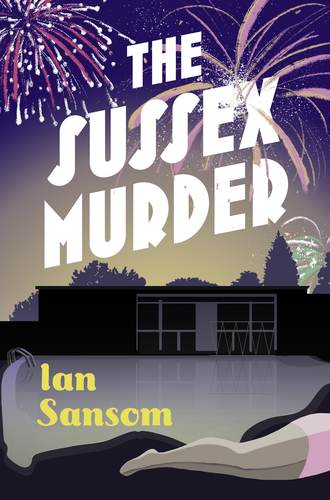
Полная версия
Flaming Sussex
‘Oi, oi,’ came one cry.
‘Oy, oy,’ came another.
‘Mind out the pave!’
‘You on the bash, mate, or what?’
‘Shove over!’
Hastily dressed, I looked back towards the hot-nut man, who nodded at my newly clothed state with calm approval. I put my shoulders back, took a deep breath, turned left and set off quickly down the street.
It was good to be back in the city.
People used to say that you could enter Club Row Market at one end leading a dog, lose it halfway down the street, and then buy it back at the other end. Certainly, it was a place where the usual rules of commerce did not necessarily apply: bruised and beaten dogs were covered in boot polish; cats were dyed; exotic singing birds turned out to be voiceless creatures, their song merrily whistled by their merry vendors as they merrily bagged them up and merrily took your money. Fortunately, it was a place where a man might easily get lost in a crowd.
It was a crisp, bright morning, though dark clouds on the horizon suggested that some cold grey London rain was soon to arrive and turn crisp and bright into dull and damp. I barged my way along the street, continually checking over my shoulder for sight of the Limehouse chap and his ladies – sight of whom, thank goodness, there was none. I barged past men and women hawking animals, bicycles, knives, tea-sets, stockings, second-hand suits and the day’s papers, all at half-price, fresh from outside newsagents in the West End. There were high-value goods at rock-bottom prices, ‘genuine’ articles almost as good as the real thing, and on every street corner urgent men and their accomplices were conducting Dutch auctions that left their customers with half of what they bid for, or nothing at all.
‘Brand new, madam. Never seen daylight or moonlight, or Fanny by gaslight.’
‘I’ll tell you what, I’ll even give you a bag to carry it away in.’
‘Pretty foreign birds! Pretty foreign birds!’
It was as good as a trip to the circus, or a day at the seaside. Traders were dressed to attract attention. There was a man singing ‘Cohen the Crooner’; a tall black man with a walking stick yelling, ‘I gotta horse! I gotta horse!’; and ye olde traditional English organ grinder with ye olde traditional English monkey. There was kosher restaurant after kosher restaurant: Felv’s, Strongwaters, Barnett’s. Entertaining and enticing as it all was, my only aim was to get away and to clear my head. Buying a dog, bagels or placing a bet were most definitely not part of the plan. Other people had other plans.
‘Hey! Hey! Hey, mate! Hey, hey! Buy a dog to keep you warm?’ offered a man with a couple of shivering puppies nestling under his overcoat. He thrust the pups towards me. They were either extremely friendly or more than a little starved, licking frantically at my fingers in the hope of finding some trace of food there, their tails wagging.
‘Look at that! They like you, mate. I could ’ave sold ’em ten times over this morning, but I want ’em to ’ave a good ’ome, see.’
‘No, thank you,’ I said, handing the puppies back and going to step round him.
‘For you, because they like you, I’ll do a special price.’
‘No, thank you,’ I said.
‘What, what’s the matter, mate? Not good enough for you?’ he said, blocking my way.
‘No, I just—’
‘These are bloomin’ good dogs, these. You sayin’ there’s somethin’ wrong with ’em?’
‘No, no.’
‘Full pedigree, these.’ Not only were they not full pedigree dogs, they were nowhere near half, a quarter, or one-eighth pedigree. ‘I’ve got their pedigree right ’ere if you want to see it.’ He patted his pockets.
Which made me think of my wallet. I checked in my jacket pocket – and was delighted to find it still safely there. Smiling with relief, I turned, triumphant, only to see the Limehouse chap approaching fast through the crowd.
A popular novelist might describe the Limehouse chap as swarthy and menacing, but this hardly did him justice. In the warmth and welcome of the East End pub the night before he had seemed the perfect drinking companion: garrulous, generous, good company. In the cold light of day I could see that he was in fact the sort of chap who looked as though he’d recently done some serious damage to good company and was intent upon doing exactly the same again, except worse, the sort of chap whose middle name would have been trouble, if he’d been the sort of chap who had a middle name, which I rather doubted. Even among the rather shady figures of Club Row, he stood out in the crowd like a dark silhouette.
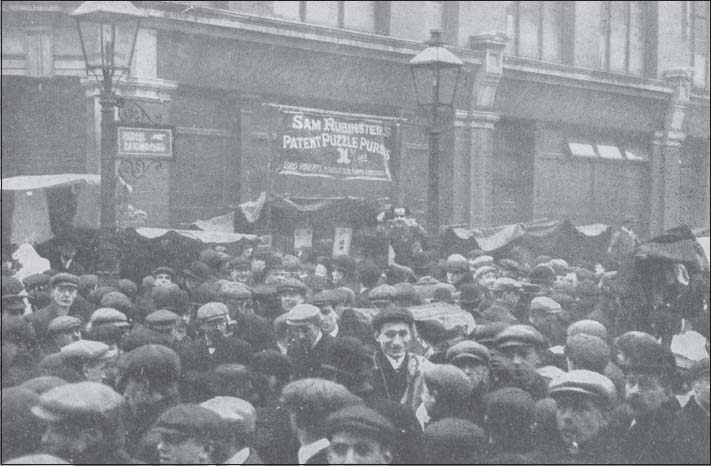
Petticoat Lane: The People’s Piccadiily
Pushing past the puppy-seller – ‘You fuckin’ nark,’ he called after me as I went, a traditional East End greeting – I ducked down, squeezed between some cages and slipped into a shop.

CHAPTER 5

THIS, I remember thinking, this sort of indignity, is exactly what I could do without. This was what I was trying to avoid. Running around London, running around the country, always running, always hiding, always skulking. It was not the life I wanted to live.
As luck would or wouldn’t have it, this particular skulk-hole was a tailor’s – a tiny tailor’s shop, not much bigger than someone’s front room, which I guessed was exactly what it was.
‘Can I help you, sir?’ asked a jolly round-faced man behind the counter, glasses perched on his rather sweaty forehead, waistcoat tightly buttoned over his belly, tape measure loose round his neck, tailor’s chalk in one hand, cigarette in the other. Behind him two young Mediterranean-looking men were at enormous sewing machines, hammering away, hard at work, surrounded by swatches of fabric and vast lengths of cloth, piles of brown paper and, hanging everywhere, what appeared to be half-made garments. The place was like a fabric abattoir.
I glanced out of the window behind me. The Limehouse chap might still appear at any moment, in which case I’d be trapped in this tiny place, unable to escape. I looked at the tailor, with an expression that if not entirely pleading was certainly seeking understanding, and the tailor looked at me, and at my suit, with an expression that switched from curious to concerned to calculating.
It had been a relatively mild autumn and the moths from Morley’s cottage had recently been making significant inroads into all my clothes, including this – once fine, now faded and moth-scarred – blue serge suit. Morley, of course, was something of an expert on the clothes moth, Tineola bisselliella, and on the many and various methods of deterrent: mothballs, camphor wood, bay leaves, cloves, lavender, conkers and all the other standard home remedies. But whatever the deterrent, the little larvae always seem to find a way through. You can wash and you can scrub, you can scatter mothballs far and wide, but again and again the moths will come, they will mate, the females will look for a nice warm place to lay their eggs, the eggs will hatch into larvae, and destruction will ensue. There was and there is, it seems, no solution to moths. Morley’s article on the clothes moth, published in the now long-since defunct Home Notes in August 1939, is titled ‘Eternal Vigilance: The War Against Moths’, and makes for depressing reading. ‘Eternal vigilance is required,’ Morley would often say: it was one of his favourite phrases. ‘Eternal vigilance. Or all is lost.’
Glancing at my suit for a moment, the tailor said nothing.
Then, ‘Sugar lump, my friend?’ he asked.
He indicated a bowl of sugar lumps on the counter top.
‘No, thank you,’ I said, again looking nervously behind me, and again he followed my gaze, then slowly took a sugar lump from the bowl, popped it in his mouth and crunched down on it with surprising force – chromsht, chromsht, chromsht – finishing it off with relish.
‘Sir is desperate; for a new suit, perhaps?’
I couldn’t possibly afford a new suit, even here. My suit was the suit I had bought when I inherited some money from my parents.
‘Yes, that’s right,’ I said. ‘I am desperate for a new suit.’
‘Then sir has come to the right place.’
I glanced again quickly outside.
‘Perhaps I can just use your changing room for a moment?’ I said, and gestured towards a tiny cubicle on the left, hung with a heavy, faded moss-green curtain.
The tailor shook his head. ‘No, no, no, sir. In order to fit the suit I would need to measure you up properly, in private. Total privacy. If you need a new suit.’
‘I really need a new suit,’ I said.
‘Good. Then come. Come. Quick.’
He lifted a part of the counter top, kicked open a hinged door in the counter and let me through, past the men at the sewing machines, who paid us no attention whatsoever, and through a door into a windowless kitchen-cum-fitting room, piled high with yet more fabric and pattern paper, which almost obscured the two vast, ancient, weirdly ornate full-length mirrors set on either side of the space, which gave the room the appearance of decayed imperial chaos.
‘Thank you,’ I said.
‘No need to thank me, sir,’ said the tailor, who proceeded to measure me up for a suit I did not want and could not afford while discussing cut, buttons and what he referred to as ‘suitage’.
Measurements completed, ‘And when would sir like to collect his suit?’ he asked.
I rather suspected that he knew I had no intention of coming to collect my suit. I also rather suspected that he had no intention of making me a suit.
‘I can come—’
‘We can have it ready in a week, sir.’
‘Well. A week, then,’ I said.
‘By which time the coast should be clear,’ he said.
‘The coast?’
He nodded out towards the front of the shop.
‘Ah,’ I said.
‘We do require a small deposit, of course, sir, for this special sort of service.’
‘Of course.’
I turned away and checked my wallet. Farthings, ha’pennies, thrupenny bits – and two ten bob notes. It was everything I had.
‘I’m afraid I don’t have—’
I turned back to find the tailor, plus the two Mediterranean lads, grinning, blocking the door.
‘We’ll take whatever you do have,’ said the tailor, leaning over and plucking the ten bob notes from my wallet.
I had entered the shop in order to avoid losing money to a merciless-looking thug: I’d ended up losing money to some harmless-looking hustlers.
I had enough money left to buy a cup of tea – and perhaps make a couple of phone calls, which I duly resolved to do. I was getting out.
The tailor and the two men turned and left, and I duly followed them, making my way back to the front of the shop, ready to leave.
‘Your receipt, sir,’ said the tailor, as I was opening the door onto the street. He was writing something on a pad.
I made no reply.
He then proffered the receipt towards me. ‘And we’ll see you next week, then.’
‘Yes,’ I said, turning back and taking the receipt, and turning towards the door again. ‘Next week, absolutely.’
The coast appeared to be clear.
‘Actually,’ I said, as I reached the door, ‘I wonder if I could just borrow your pad for a moment?’
The tailor swivelled the pad towards me.
‘And a pencil or pen?’ I asked.
He took his pencil from behind his ear, licked it ostentatiously and ceremoniously handed it to me.
‘With pleasure, sir.’
And so I scrawled my resignation letter to Morley – courtesy of M. Skulnik, Sclater Street, E1, estd. 1928 – pocketed it and, checking in every direction to make sure the coast was clear, ventured outside.
I’d had enough.

CHAPTER 6

WITH MY FINAL FEW COINS I made my phone calls and adjourned to a pie and mash shop off Sclater Street, whose sole recommendation was that it claimed to offer the cheapest cup of tea on the market. Under other less trying circumstances, I might well have adjourned to one of my favourite East End eating establishments, Bloom’s on Aldgate, or Ostwind’s, with its bakery in the basement, or Strongwaters, or Silberstein’s: a man could eat like a king in the restaurants around the Lane, while snacking on latkes and herring in between.
But I had rather lost my appetite.
The first call I made was to Willy Mann, a restaurateur and an associate of the infamous Mr Klein, an East End businessman in the loosest and broadest sense – which is to say, a crook – who had offered me work on a number of occasions since my return from Spain, work I had so far declined, on the basis it was beneath my dignity and against all my principles.
Mr Klein had wide-ranging business interests – in property, retail, wholesale, in precious metals and pharmaceuticals, the import and export thereof – none of which enterprises particularly appealed, and several of which were both highly illegal and extremely dangerous, but which, crucially, did not involve endlessly sharpening the pencils of the country’s leading autodidact, and which would, significantly, mean that I didn’t need to travel the length and breadth of the country in order to make a meagre living, and could safely remain in London without fear of threat or retribution from people like the Limehouse chap and the many and various others whom I had foolishly offended. Out of the frying pan and into the fire – a desperate bid for freedom.
The second call was to Miriam.
I’d intended simply to let Miriam know that I wouldn’t be joining her for our planned trip to Sussex, but she had somehow commandeered and then entirely redirected the conversation, letting me know that she needed to talk to me urgently, immediately and face to face. Which is how I had ended up, with Willy Mann, discussing the possible terms and conditions of working for Mr Klein, when Miriam arrived.
As always, one was instantly struck by her sheer raving beauty, her languorousness, her confidence and her charm. She had, as always, the appearance of someone who had recently raised herself to commanding heights from a position of reclining elegance – possibly reading Proust, or the Picture Post, with liquid refreshments, a handsome chauffeur and a strokable Pekinese all conveniently at hand. She certainly did not look like she belonged in an East End pie and mash shop, and she made no attempt to look like she belonged. She looked entirely – I think the phrase is – à la mode, in the most extraordinary red and white checked wool coat with fur shoulder detailing and a thick rolled red and white belt, over a creamy white crepe dress, and what appeared to me to be a hunting cap set with a monkey paw brooch. To say that she stood out against the white-tiled walls of the pie and mash shop and its many mirrors reflecting the dark, huddled masses inside and out, would be an understatement. She looked like a visiting dignitary, or indeed an ambassador not merely from another country but from an entirely other world.
‘Miriam,’ I said, getting up from the table. ‘You’re looking—’
‘Sensational, Sefton?’ she said.
‘That’s exactly what I was going to say.’
‘Good.’ She flashed me a smile.
‘Miss Morley,’ said Willy Mann, getting up and extending his hand.
‘Have we met?’ asked Miriam.
‘In Essex, miss.’
‘Ah, yes,’ said Miriam. ‘Never mind.’ She settled herself at our table. ‘One of your regular haunts, Sefton?’
‘Not exactly,’ I said. ‘Would you like … some pie and mash?’ Even the question seemed absurd.
‘It’s a little early in the day for me for pie and mash, thank you, Sefton.’ She stared at our mugs of stewed tea, and at Willy Mann’s plate of half-eaten burned brown pastry, grey minced mutton, creamy mashed potato and pool of thin green parsley sauce – and shuddered. ‘Though thinking about it, any time is a little early in the day for pie and mash.’
‘Can I get you anything, miss?’ asked the café owner, who’d appeared at our table on Miriam’s arrival, rightly anticipating that this was a customer who might expect a rather more attentive than average standard of service.
Before saying anything, Miriam looked up at the man, slowly and appraisingly. For a moment I thought she might actually finger his rather stained apron. He was a dark-skinned gentleman, extraordinarily handsome – perhaps from Ceylon – who spoke the most perfectly accented East End English. I was reminded of the old Jewish joke about the Chinese waiter in one of the East End’s many kosher restaurants who spoke perfect Yiddish. ‘Don’t tell him,’ the restaurant’s owner begged his customers, ‘he thinks he’s learning English!’
‘A cup of coffee would be wonderful,’ she said, after another moment’s pause. ‘If you can manage it.’ She had him, as they say, in the palm of her hand. The café owner flushed and became flustered.
‘I could do you tea, miss,’ he said apologetically.
‘Do you know, tea would be almost as equally wonderful, thank you,’ she said.
‘Are you sure we can’t tempt you, Miriam?’ I said, gesturing towards Willy’s pie and mash.
‘Quite sure, thank you.’
The café owner departed, doubtless to brew some fresh tea for Miriam, rather than serving the swill that he was happy to dish out to the rest of us.
‘So,’ said Miriam. ‘Here we are.’
‘Indeed,’ said Willy Mann, pushing around some mashed potato on his plate. ‘Here we are.’
I’d told Miriam that I’d be free to meet her at one o’clock. It was now midday: for the first and last time during our long relationship, she was early. This was awkward. I’d hoped to have concluded my business with Willy before having to deal with Miriam. As it was, we were all now going to have to deal with each other.
While I stared out the window, still scanning the street for the Limehouse chap, Willy and Miriam eyed each other up. Or at least, Willy eyed Miriam up, and Miriam allowed herself to be eyed: this was one of her techniques. So many men found her alluring, she seemed to have found the best way to deal with them was to allow them their admiration – and then, like a praying mantis, she would crush them mercilessly. Her ruthless impassivity was a technique I had observed in practice many times and it was, invariably, devastatingly, outrageously successful. To see Miriam at work among men was to witness something like a Miss Havisham, who just happened to look like Hedy Lamarr.
‘So what brings you to Club Row? Have you come for a dog, Miss Morley?’ asked Willy, rather teasingly, I thought.
‘Not exactly,’ said Miriam, ‘no.’ She looked at me. ‘Though I do love dogs. On more than one occasion a stray dog on the street has followed me home. Isn’t that right, Sefton?’ I had no recall of any stray dog ever having followed her home and wasn’t quite sure what she was referring to. ‘Dogs just seem to come to me,’ continued Miriam. ‘But they must be trained properly, don’t you think?’
‘Indeed,’ said Willy, who had lost all interest in his pie and mash and who was now staring at Miriam, fascinated. It was always the way. I wasn’t quite sure how she did it.
‘I like dogs who are – what’s the word, Sefton?’
‘I’m not sure, Miriam,’ I said. ‘Docile?’
‘No,’ said Miriam.
‘Ferocious?’ offered Willy.
‘No, no,’ said Miriam.
‘Loyal?’
‘No.’
‘Obedient,’ said Willy.
‘Yes. That’s it. That’s the word.’
‘Obedience is important,’ agreed Willy.
‘Isn’t it,’ said Miriam. And she laughed, throwing back her head in studied abandon.
I was beginning to see that this was not really a conversation about dogs at all, except perhaps that like a dog spying an open gate, Miriam was taking off in whatever direction her whim took her.
‘And, remind me, what is it you do, Mr …?’ she asked.
‘Mann,’ said Willy.
‘Mr Mann. Curious name.’
‘It’s German,’ said Willy.
‘Ah. Sprechen Sie Deutsch?’
‘I’m afraid not,’ said Willy. ‘My parents came here many years ago. Their first language was Yiddish.’
‘Ah. The Mame Loshn. Das schadet nichts,’ said Miriam. ‘I do like to practise my German whenever I get the chance.’
Miriam’s tea arrived, in an actual cup, in an actual saucer, with an actual jug of milk, the café owner also seemingly having donned a fresh apron for the sole purpose of visiting our table.
‘Can I get you anything else, miss?’
‘No, thank you,’ said Miriam dismissively, returning to her captivation of Willy Mann. ‘So what brings you here this morning, Mr Mann?’ The freshly aproned café owner shuffled away. ‘You have business in these parts?’
‘I have business in many parts of London,’ said Willy.
‘Well, lucky you,’ said Miriam. ‘But here in particular?’
‘Willy and his business partners help protect the local community from the Black Shirts,’ I said.
‘Is that right?’ said Miriam.
‘That’s certainly a part of what we do here, yes,’ said Willy.
‘Well, that’s very good of you,’ said Miriam. ‘And you do that entirely out of the goodness of your heart, do you?’
‘We do, miss. Absolutely we do.’
‘Gratis, for nothing and entirely for free?’
‘Well, of course a business like ours—’
‘A protection racket,’ said Miriam.
‘We wouldn’t call it that, miss.’
‘I’m sure you wouldn’t,’ said Miriam, taking a sip of her tea and wincing slightly. ‘But I would. Go on.’
‘A … service such as ours costs money, miss, as you can imagine.’
‘I can imagine, yes,’ said Miriam, who was looking around the café. ‘How much, exactly?’
‘Well, it depends, but let’s say as little as a shilling a week for your safety.’
‘A shilling.’
‘Very reasonable, don’t you think, miss?’
‘I certainly do not think,’ said Miriam. ‘There are by my count almost forty people currently in this establishment. If each of them paid you just a shilling each you’d have two pounds; is that correct?’
‘Your maths is impeccable,’ said Willy.
‘So that’s two pounds per week, making eight pounds per month from the patrons of this café alone.’
‘But not everyone in this café would be paying us a shilling a week.’
‘I’m sure they wouldn’t. They’d be far too sensible. And if they don’t?’
‘If they don’t what?’ said Willy.
‘If they don’t pay you their shilling. I presume there’s the implied threat of violence.’
‘We offer protection,’ said Willy.
‘Which of course implies a threat,’ said Miriam.
‘Not from us,’ said Willy.
‘Really?’
‘Absolutely.’
‘So all your clients have willingly entered into a voluntary contract with you?’
‘That’s correct.’
‘A contract that essentially consists of you granting them protection in return for the payment of a small cash sum.’
‘That’s right.’


